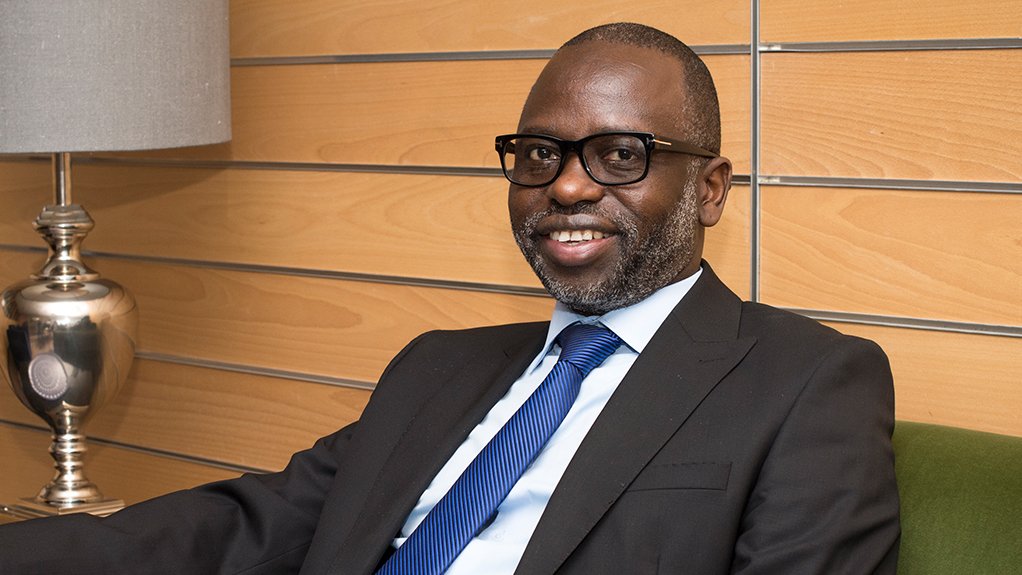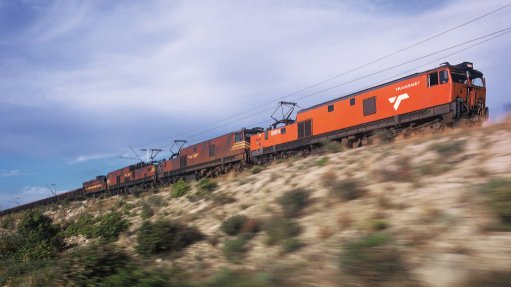AI can help humanity, but data and computing needed to enable its use
A specially trained neural network artificial intelligence (AI) system can use the signal from an electroencephalogram to detect epilepsy symptoms with a 90% accuracy, can work constantly and its accuracy does not degrade like a real doctor's owing to fatigue or illness.
This can help to improve the detection and early detection of epilepsy by doctors and improve outcomes for many patients, but a system with 90% accuracy will not be able to pilot an aircraft safely.
Therefore, each area in which AI was applied would have different requirements, United Nations (UN) University rector and UN under-secretary-general Professor Tshilidzi Marwala said this week during a lecture hosted by the Mapungubwe Institute for Strategic Reflection on December 6.
"AI is a technique used to make machines act and interact using mathematics and coding. Importantly, people can now do a great deal with AI without knowing mathematics or coding.
"It has been democratised and many of the applications of AI we are now seeing are not necessarily developed by people who know what a back propagation algorithm is about," he explained.
Many AI algorithms are available free to use on Internet services company Google’s AI Platform and open source machine learning platform Tensor Flow, among others.
The first paper on AI was penned in the 1950s by Alan Turing. Deep learning, which was currently used for language and image processing, was invented in the 1960s and the training of it was perfected by 1986, Marwala pointed out.
"Algorithms are no longer a point of competition. What is the biggest thing currently is data. That is what differentiates an AI system that can write essays and one that cannot. However, data needs to be processed, and this requires computational power," he noted.
The AI race had become about two things, namely access to data and access to computing power to use algorithms to create systems to do predictive or generative work, he said.
Worldwide, 57 countries have AI strategies, but South Africa does not. The UK held an AI summit convened by the Prime Minister, the US President issued an executive order on AI this year and China has a governmental regulatory framework on AI.
"South Africa must start on this, and must also develop implementation capacity," Marwala said.
"In line with the [South African] Fourth Industrial Revolution (4IR) Commission recommendations in 2020, we must educate people on AI. That is why I introduced an AI course for all University of Johannesburg (UJ) students when I was vice-chancellor.
"South Africa must also invest in the technology of production, the lack of which is why it is deindustrialising. Therefore, another recommendation of the 4IR Commission is that South Africa must build AI infrastructure, incentivise adoption and use AI to reindustrialise South Africa."
AI systems will also change economics. Pricing is derived from the equilibrium between demand and supply, with mass retailers using aggregate demand and supply, he illustrated.
However, online retailers measure demand in terms of the user's interests and set their prices differently depending on the individual's observed buying patterns and individualised demand.
"This to me was a revelation and is similar to the age-old tradition of haggling with a merchant that also gave each customer an individualised demand profile. AI systems will change economics, whether through changing information asymmetry or the efficiency of the market, or other means," he highlighted.
"AI is a Tale of Two Cities and can lead to an age of wisdom or the winter of despair. In 2007, the software Aiden learned how to bluff in poker without prompting and the developers did not know what this meant.
"Where is the control switch to ensure that an AI system does not bluff when it may have existential consequences for us?"
However, AI could be used to predict intra-State conflicts. Social media already provided data that could be mined, and AI systems could come up with indicators of the state of peacefulness in a region. One use could be to prevent potential conflict, he highlighted.
"Whether the use of AI leads to an age of wisdom depends on what we do as individuals, as organisations and as countries.
"At the UN, we are worried about the impact AI can have on privacy and surveillance and the consequences of bias and discrimination, and we are worried about the fact that AI systems are not transparent. An AI system may be able to give a good idea of why it declined a person's loan application, but it cannot definitively state why it declined the loan."
The challenge was that if an algorithm was explainable, then it was not very accurate and if it was highly accurate, it was not explainable, he said.
"Additionally, there are issues of accountability. What will happen if an autonomous system makes an illegal decision? Who would be responsible and what regulations do we need to put in place?" he noted.
"It is important to realise that AI can give us knowledge, but not wisdom. Therefore, the step to take the knowledge from these systems to wisdom is still the step that needs to be done by people. We need to determine the role of the human being and the role of technology," said Marwala.
"These are the pressing issues of our time. AI is here and we need to deal with it."
Meanwhile, the UN Science Advisory Board has issued a high-level advisory on AI, with UN secretary-general António Guterres at the launch briefing. The World Health Organisation has developed guidelines for AI use in medicine, and the UN Educational, Scientific and Cultural Organisation and European industry body Advanced Technologies for Industry have launched the AI for Good initiative, he said.
"There has also been a question on whether there needs to be a UN AI agency, and the UN University has also developed a set of AI policies," he noted.
Further, data is important for sustainable development.
However, there are challenges with cross-border data flows, including that medical records are not readily shared between States, often with good reason. Additionally, there are no regulations on what happens to the data of a person's smart watch, which can track health and medical information.
"Should this information be available? I could not take my medical records to Japan, as medical data cannot be moved across borders," he added.
South Africa, and the world, needs to identify good applications for AI, and maximise the good from the technology while minimising the bad.
"This is called multi-objective optimisation, and this, in turn, depends on what is defined as important. This is a question of judgement and we need to choose a point on the Pareto Frontier and then support this through the development of AI laws, policies and regulations, and we should support international regulation of AI," he said.
"It is the responsibility of good leadership to design mechanisms to ensure that we take the greatest number of people with us."
Comments
Announcements
What's On
Subscribe to improve your user experience...
Option 1 (equivalent of R125 a month):
Receive a weekly copy of Creamer Media's Engineering News & Mining Weekly magazine
(print copy for those in South Africa and e-magazine for those outside of South Africa)
Receive daily email newsletters
Access to full search results
Access archive of magazine back copies
Access to Projects in Progress
Access to ONE Research Report of your choice in PDF format
Option 2 (equivalent of R375 a month):
All benefits from Option 1
PLUS
Access to Creamer Media's Research Channel Africa for ALL Research Reports, in PDF format, on various industrial and mining sectors
including Electricity; Water; Energy Transition; Hydrogen; Roads, Rail and Ports; Coal; Gold; Platinum; Battery Metals; etc.
Already a subscriber?
Forgotten your password?
Receive weekly copy of Creamer Media's Engineering News & Mining Weekly magazine (print copy for those in South Africa and e-magazine for those outside of South Africa)
➕
Recieve daily email newsletters
➕
Access to full search results
➕
Access archive of magazine back copies
➕
Access to Projects in Progress
➕
Access to ONE Research Report of your choice in PDF format
RESEARCH CHANNEL AFRICA
R4500 (equivalent of R375 a month)
SUBSCRIBEAll benefits from Option 1
➕
Access to Creamer Media's Research Channel Africa for ALL Research Reports on various industrial and mining sectors, in PDF format, including on:
Electricity
➕
Water
➕
Energy Transition
➕
Hydrogen
➕
Roads, Rail and Ports
➕
Coal
➕
Gold
➕
Platinum
➕
Battery Metals
➕
etc.
Receive all benefits from Option 1 or Option 2 delivered to numerous people at your company
➕
Multiple User names and Passwords for simultaneous log-ins
➕
Intranet integration access to all in your organisation




















